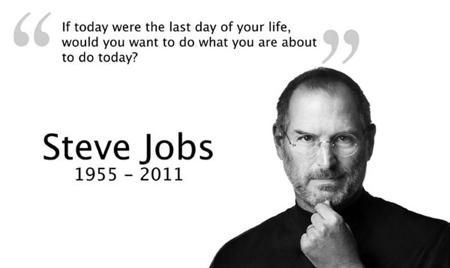For my part, I rather distrust men or concerns that rise up with the speed of rockets. Sudden rises are sometimes followed by equally sudden falls. I have most faith in the individual or enterprise that advances step by step. A mushroom can spring up in a day; an oak takes 50 years or more to reach maturity. Mushrooms don’t last; oaks do. The real cause for an enormous number of business failures is premature over-expansion, attempting to gallop before learning to creep. Sudden successes often invite sudden reverses. — B.C. Forbes
The Value of Slow, Steady Progress
In today’s fast-paced world, where overnight success stories dominate the headlines, it’s easy to become enamoured with the idea of rapid growth. Yet, the wisdom in taking things one step at a time remains timeless. Advancing slowly but surely is not only a sound strategy for personal growth, but also a proven approach for sustainable business success. Rushing towards greatness without a solid foundation can lead to disaster, while steady progress builds resilience, durability, and long-term achievements.
The metaphor of the mushroom and the oak is a powerful one: businesses or individuals that rise rapidly, without careful planning or growth, often fall just as quickly. In contrast, those that advance step by step develop the roots and strength needed to weather challenges and sustain their success over the long haul.
Why Sudden Success Can Be Dangerous
While it may be tempting to embrace a meteoric rise, the reality is that rapid growth often comes with significant risks. Companies that expand too quickly often struggle to manage their newfound success, encountering cash flow problems, operational inefficiencies, or market shifts they are unprepared for. The sudden influx of customers or attention can overwhelm systems that are not built to handle such volume.
A classic example is the dot-com boom of the late 1990s, where countless tech startups surged to prominence only to collapse when the bubble burst. Many of these companies experienced rapid growth, but without strong business models or long-term strategies, they were ill-equipped to survive the downturn. They shot up like mushrooms, only to wither when the market conditions changed. The fallout was immense, proving that sustainable success rarely comes overnight.
Learning to Walk Before You Run
One of the key lessons for both individuals and businesses is to pace yourself. Success, particularly in business, is a marathon, not a sprint. Attempting to gallop before learning to creep is a recipe for failure. Growth needs to be measured and controlled. Each step, no matter how small, builds a stronger foundation for the next.
Startups and entrepreneurs often fall into the trap of expanding too quickly. They chase rapid growth—through aggressive marketing, hiring, or scaling production—without ensuring that their internal processes are ready to handle the pressure. This can lead to poor customer experiences, quality control issues, and ultimately, failure. Learning to handle smaller, manageable successes before aiming for exponential growth helps to mitigate these risks and creates a stable platform for future expansion.
The Oak Tree Mentality in Business
Businesses that approach growth with an “oak tree mentality” are often more successful in the long term. These businesses focus on building strong foundations, such as solid cash flow, robust operational processes, and a loyal customer base. They don’t rush to expand into new markets or launch new products until they’ve perfected their current offerings.
Companies like Patagonia or Ikea are excellent examples of businesses that grew steadily over time. They focused on quality, consistency, and cultivating their brand identity before pushing for aggressive expansion. Their careful approach to growth allowed them to adapt to changing market conditions and avoid the pitfalls of premature over-expansion.
By focusing on long-term goals, businesses can maintain the flexibility and stability needed to survive economic downturns, market disruptions, or competitive pressures. Just like an oak tree, they can withstand the storms that knock down more fragile, fast-growing enterprises.
Patience and Perseverance in Personal Growth
The principle of advancing step by step isn’t limited to the business world. It’s equally important in personal development. Many people seek quick fixes—whether it’s in learning a new skill, achieving fitness goals, or advancing in their careers—but real, lasting progress takes time.
Mastery of any discipline requires patience and perseverance. Whether you’re learning to code, building a professional network, or developing leadership skills, rushing the process can lead to burnout or superficial knowledge. True expertise comes from deliberate practice and incremental improvements over time. Just as an oak tree needs years to grow into its full potential, individuals need time to grow into their full abilities.
Avoiding the Temptation of Shortcuts
In a world obsessed with instant gratification, it can be difficult to resist the lure of shortcuts. But the truth is, there are very few shortcuts to genuine success. Many entrepreneurs, for example, are drawn to trends that promise quick wins or rapid returns on investment. They might over-leverage themselves in a hot market or expand into new ventures without fully understanding the risks. Unfortunately, when these shortcuts fail, they often result in catastrophic setbacks.
Instead, the most successful individuals and businesses stick to their long-term strategies. They focus on building a solid foundation and improving consistently, even if it means slower progress in the short term. This disciplined approach allows them to avoid the sudden reversals that often follow rapid success and keeps them on a path to sustainable growth.
The Rewards of Long-Term Thinking
Advancing step by step may take time, but the rewards are worth the wait. Whether you’re building a business, mastering a skill, or working toward personal goals, each small step forward creates a more solid and lasting foundation for future success. It is in these incremental advancements that you develop the resilience, skills, and strength to overcome obstacles and thrive.
Businesses that focus on steady, controlled growth are more likely to weather financial downturns, market shifts, and other challenges. They are better positioned to seize new opportunities as they arise and maintain their success over the long term. Similarly, individuals who take the time to learn, grow, and improve gradually build the confidence and competence needed for lasting achievement.
Final Thoughts
In a world that often celebrates fast rises and overnight success, it’s important to remember the value of patience, persistence, and steady progress. Sudden success may be glamorous, but it’s often fleeting. Like an oak tree, real success takes time to grow, but it will stand the test of time.
So, whether you’re building a business, developing a new skill, or pursuing a personal goal, embrace the philosophy of advancing step by step. The slow, steady path may not be the fastest route to success, but it is the most reliable way to build something that lasts.






